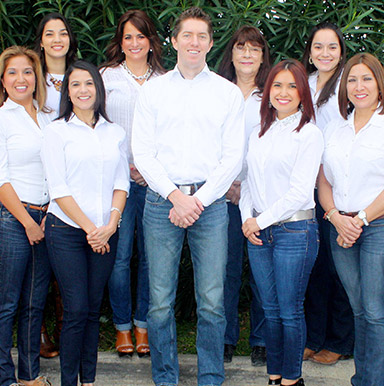 Dental implants are the most versatile tooth replacement options, and are effective in replacing any number of missing teeth from one tooth to an entire row. This is due in large part to the innovative design that replaces the entire dental structure both the roots and biting surfaces of teeth. This not only provides optimal structural support for replacement prosthetics, but promotes oral health by stimulating jawbone density and the retention of gum tissue volume. For many patients, dental implants are the clearly superior tooth replacement solution, but like any surgical procedure, there are patients who will not be ideal candidates. Before selecting dental implant tooth replacement, it’s essential that patients weigh their options, and make the choice that fits their needs.
Dental implants are the most versatile tooth replacement options, and are effective in replacing any number of missing teeth from one tooth to an entire row. This is due in large part to the innovative design that replaces the entire dental structure both the roots and biting surfaces of teeth. This not only provides optimal structural support for replacement prosthetics, but promotes oral health by stimulating jawbone density and the retention of gum tissue volume. For many patients, dental implants are the clearly superior tooth replacement solution, but like any surgical procedure, there are patients who will not be ideal candidates. Before selecting dental implant tooth replacement, it’s essential that patients weigh their options, and make the choice that fits their needs.
The Dental Implant Process
Dental implant supported prosthetics require a two-step placement and restoration process to complete, and typically, this procedure takes anywhere from three to six months. The first phase of the dental implant process is the surgical placement of implant posts. The dentist makes a small incision in the gums, and the implant post is positioned inside the empty socket. Over the course of several months following implantation, the titanium implant post fuses with the underlying bone and gum tissue mimicking natural root structure. After the post is fused with the jawbone, our team connects a semi-permanent or removable dental prosthetic.
Potential Dental Implant Concerns
Innovations in the technologies and materials used in the implant process make it safer and more predictable to receive implants each year, but not all patients make successful candidates. The three most common areas of concern when determining whether patients make successful implant candidates are:
- Lack of bone density – in order for the post to implant properly, adequate bone density is needed to support the implant. Thus patients who have thin or brittle bones prior to tooth loss or who wait a significant amount of time following tooth loss to have implants placed, may not have adequate bone density to support an implant. We may be able to offer a bone graft procedure to correct this.
- Surgical recovery – patients who suffer from immune compromising illnesses such as diabetes and HIV/AIDS may not be able to safely recover following the surgical procedure. We will review past surgical history and work with your physician to determine whether dental implants are a safe tooth replacement option in these cases.
- Biocompatibility – in some cases, patients’ systems reject the dental implant because it is not compatible with their bodies. This is a rare occurrence, but there is testing that can be done to determine whether your body is likely to reject the implant materials.
Contact Your Los Fresnos Dental Center Team
If you’re in need of tooth replacement, contact the Los Fresnos Dental Center team to schedule a dental implant consultation with our experienced dentist and team.


